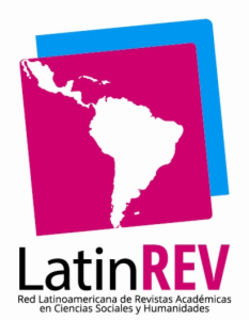ESPAÇO TURÍSTICO: ENTRE A IMERSÃO E A CENARIZAÇÃO
DOI:
https://doi.org/10.26512/2236-56562012e39914Palabras clave:
Turismo, Espaço turístico, Imersão cultural, Massificação do turismo, Agentes de produçãoResumen
Esse artigo apresenta uma série de reflexões acerca da produção do espaço. Parte do pressuposto que o chamado espaço turístico é uma redução explicativa da totalidade que é o espaço geográfico, reflexo e condicionante das relações sociais. Na nossa contemporaneidade algumas variáveis levaram a uma contínua massificação do turismo que, para além dos interesses individuais do cidadão turista, ganhou uma dimensão econômica fundamental para cidades, regiões e países. A turistificação de espaços em busca desses fluxos massificados de turistas clientes/consumidores maquia espaços transformando-os em simulacros do real a partir de mitificações e cenarizações que atendem aos interesses dos agentes de produção hegemônicos na estruturação desses territórios do turismo. Em contra partida, esse artigo traz como forma alternativa de se fazer turismo, uma atividade de imersão cultural. Muda-se a relação com o espaço e, consequentemente, o significado da vivência a partir de uma experiência mais autêntica com o desconhecido.
Descargas
Referencias
ALMEIDA, M. G. (2009). A geografia imaginária dos lugares turísticos. In: Anais do XIII Simpósio Brasileiro de Geografia Física Aplicada. Comunicação Coordenada n.08. Universidade Federal de Viçosa, set..
ANDRADE, A. B. (2009). Desafios para a pesquisa sobre turismo urbano. In: BAQUEIRO, P. R. B.; ANDRADE, A. B. Turismo: Academia e Mercado. Salvador: Ponto e Vírgula Publicações, , p. 107-126.
ANDRADE, A. B. (2010). Novas variáveis para o trato do território na contemporaneidade. In: Revista Finisterra. v. XLV, Lisboa/Portugal: Departamento de Geografia da Universidade de Lisboa, p.157-170.
BARRETO, M. (1995). Manual de iniciação ao estudo do Turismo. Coleção Turismo. Campinas: Papirus.
BRASILTURISMO. (2011). Portal Brasil Turismo. Dados sobre o turismo. Disponível em: <http://www.brasilturismo.com/turismo/dadosdoturismo.php>. Acesso em: 18 out 2011.
CARLOS, A. F. A. (2002). O turismo e a produção do não-lugar. In.: CASTRO, A.F.A. (org.) Turismo: Espaço, paisagem e cultura. São Paulo: Hucitec, p.25-37.
COSTA, E. B. (2010). A dialética da construção destrutiva na consagração do Patrimônio Mundial. Coord. F. C. SCARLATO. São Paulo: Humanitas FAPESP.
LICKORISH, L.J.; JENKINS, C.L. (2000). Introdução ao Turismo. Rio de Janeiro: Campus.
MINISTÉRIO DO TURISMO. (2011). Sítio oficial do Ministério do Turismo no Brasil. Estatística sobre o turismo. Disponível em: http://www.dadosefatos.turismo.gov.br/ Acesso em: 18 out 2011.
RAFFESTIN, C. (1993). Por uma geografia do poder. Trad. Maria C. França. Série Temas v.29, São Paulo: Ed. Ática.
RODRIGUES, A. B. (2001). Turismo e Espaço. Rumo a um conhecimento transdisciplinar. São Paulo: Hucitec.
SANTOS, M. (1978). Por uma Geografia Nova. São Paulo: Hucitec.
SANTOS, M. (1982). Pesando o espaço do homem. São Paulo: Nobel.
SANTOS, M. (1996). A Natureza do Espaço: técnica e tempo, razão e emoção. São Paulo: Hucitec.
SANTOS, M. (2000). Por uma outra globalização. Do pensamento único à consciência universal. São Paulo: Record,
SANTOS, M.; SILVEIRA, M. L. (2001). O Brasil: território e sociedade no início do século XXI. Rio de Janeiro: Record.
TRIGO, L. G. G. (2000). Turismo Básico. 4ª ed. São Paulo: Editora SENAC.
TUAN, Y. F. (1980). Topofilia. Um estudo de percepção, atitudes e valores do meio ambiente. São Paulo: Difel.
WTO (World Tourism Organization). (2011). Sítio oficial das Nações Unidas. Seção da Organização Mundial do Turismo. Disponível em: <http://unwto.org/en>. Acesso em: 18 out 2011.
Descargas
Publicado
Número
Sección
Licencia

Esta obra está bajo una licencia internacional Creative Commons Atribución-NoComercial-CompartirIgual 4.0.






